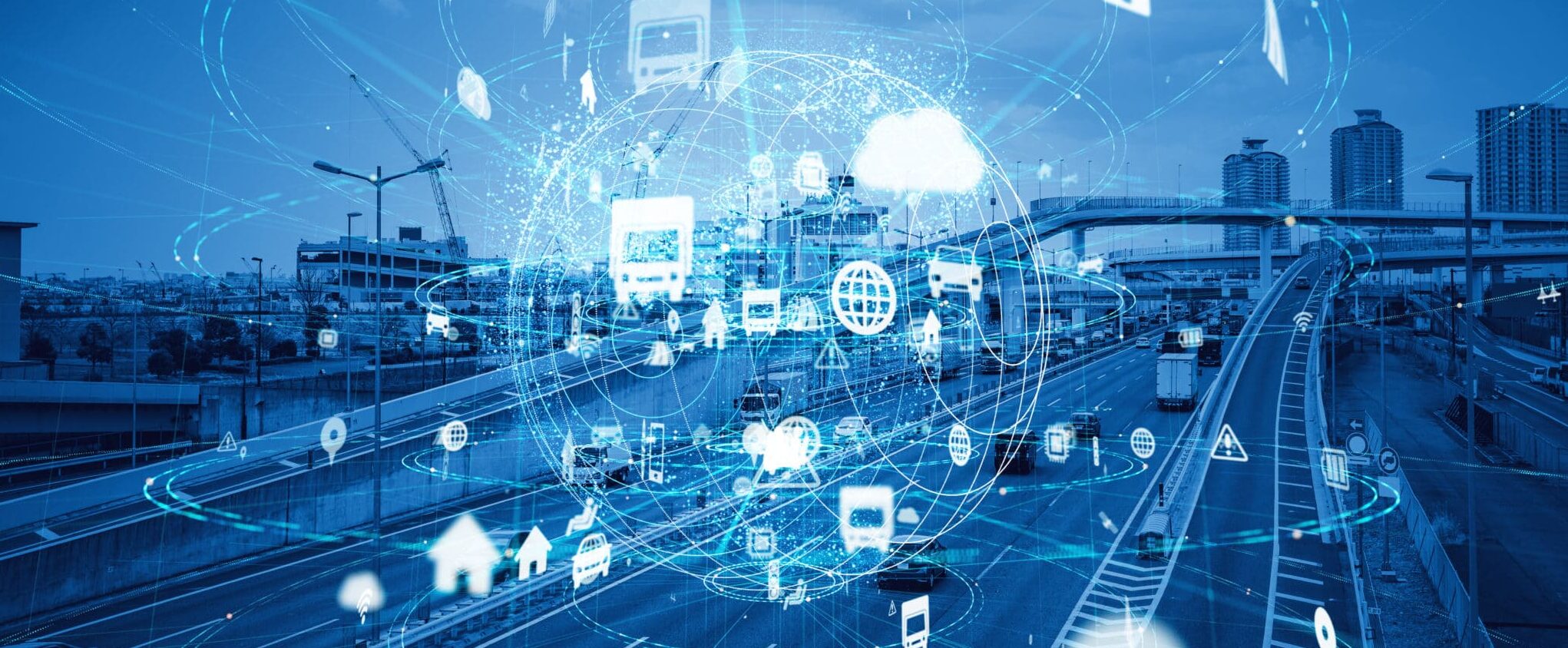
Technology is currently being rapidly integrated across every business sector with logistics undoubtedly being no exception.
Many think of its application in the supply chain as a one-size-fits-all solution to industry issues; however, that is often a futuristic hope than a current snapshot.
Where technological trends have the most significant impact in today’s logistics landscape is pragmatic productivity and performance visibility tools.
While advancements like autonomous vehicles may one day be implemented throughout the sector, technology is currently shaping the way providers operate today in more subtle and less immediately apparent ways.
Here are some of the biggest logistics tech trends to watch for.
Artificial Intelligence in Logistics Technology
Over the past few years, many industry providers have worked to incorporate automated processes and artificial intelligence platforms into their business offerings. Despite the image of robotic workers or advanced computer systems that comes to mind, this artificial intelligence trend is taking hold in less obvious ways than one might expect.
Smart logistics providers are not looking to automation or artificial intelligence as a one-stop solution currently. They are instead leveraging a blend of advanced technology and human reasoning. The truly beneficial application of this technology as it stands today is in allowing personnel to make better, more sound decisions based on automated data capture and synthesis.
As AI and automation continue to progress, this trend will become more prevalent. But it is essential as a shipper to look for firms that are currently blending automated processes with critical thinking for industry experts in what many refer to as augmented intelligence.
Supply Chain Visibility
Visibility has been a logistics technology trend for quite some time, but its prevalence and importance are higher than ever.
It provides a lens through which to view the complexity of the supply chain and vigilance of a shipment. And it functions as a strategic advantage in customer service that allows parties to track shipment status, location, arrival times, departure times, and other vital data.
By having this level of perception into the supply chain, logistics providers and shippers alike can intervene where and when it is necessary to prevent missed deliveries.
Logistics professionals can also utilize visibility to make deliberate planning decisions for future shipments, thus unlocking previously untapped efficiencies.
Data Science and Management
One of the fastest-growing business competencies comes in capturing, synthesizing, interpreting, and acting on data.
Because of the vast amount of data available in the supply chain, its importance in logistics is even more pronounced than in other industries.
Its place in logistics decision-making is accelerating with no signs of slowing down.
To make the most of your logistics data, your organization either needs a sophisticated infrastructure with experienced personnel to gather and interpret. Or, like many shippers, you can outsource this function to a data-driven logistics provider.
With an effective data strategy, organizations can supply chain performance, decrease transportation spend, and effectively manage customer expectations.
Leveraging data can help you identify optimal shipping scenarios and the best carriers, and other critical transportation insights.
Blockchain Applications and Logistics Technology
Blockchain is one of the most talked-about technological advancements of the past few years. Despite its use as a buzzword in much media, many are unaware of its application.
Typically, when most hear the word blockchain, they think of cryptocurrency. However, cryptocurrency is just the most popular application for the technology. There are many other uses for blockchain, including improving the different parties’ cooperative efforts in the food and beverage supply chain.
In an age where food and beverage safety and ingredient sourcing are two crucial product features, blockchain helps all manufacturers, retailers, distributors, and consumers maintain critical visibility.
And that is just one application of the technology. Many different industries could benefit by integrating the digital ledger known as blockchain into their logistics processes.
Tech-Driven Sustainability Initiatives
Sustainability has become a crucial part of corporate strategy and finding ways to improve your supply chain is a reliable way of achieving it.
And technology has become the means of finding ways to improve supply chain sustainability practices.
Through automated processes and data-driven insights, logistics providers are finding ways for brands to consolidate shipments, find optimal routes, secure more environmentally friendly transportation means, and eliminate unsustainable inefficiencies.
Identifying methods to reduce emissions and driving more green transportation processes will become increasingly important in the coming years.
Incorporating Top 5 Logistics Technology Trends
Technology is a driving force in the logistics world. It is essential to have a number of new cutting-edge applications at your disposal in order to make supply chain improvements that can help you deliver to your most important customers on-time and on-budget.
If you are like many CPG brands, outsourcing parts of your supply chain to a third-party can ensure that you have access to the latest technology. However, it is equally critical to work with a partner that utilizes the right mix of new applications and insight derived from industry-experienced professionals.
Too often, technology-exclusive solutions get attention without having the capability to deliver at their promised level. Technological suites left to their own devices will consistently fall short in solving a problem as complex and nuanced as critical freight delivery without critical-thinking and human interaction.
At Zipline Logistics, we understand how to strike the proper balance of technological insight and human interaction—interested in learning more about how we help customers achieve their logistics goals?